Introduction
Under the Smart Cities Mission, Chennai is striving to improve the lives of its urban population. However, this project is failing to involve citizens in what changes will be made, and thus it is failing to provide a sustainable and inclusive space for every citizen. In order to craft an inclusive city, we must hear from all voices. One group that needs addressed are the street vendors of T Nagar. This storymap aims to get a better grasp on the lives and business endeavors of the street vendors so that they too can be incorporated into the city.

scroll
Joining Forces
.jpg)
The location choice for street vendors varies by vendor. This, in part, has to do with the product that the vendor sells. For these snack and tea vendors, they explained that they are located next to one another with the goal of attracting a large crowd. Groups of men will often congregate to have afternoon snacks and tea. In order to be thoughtfully incorporated into the Smart City space, the business strategy of the different types of street vendors must be investigated.
Interdependence
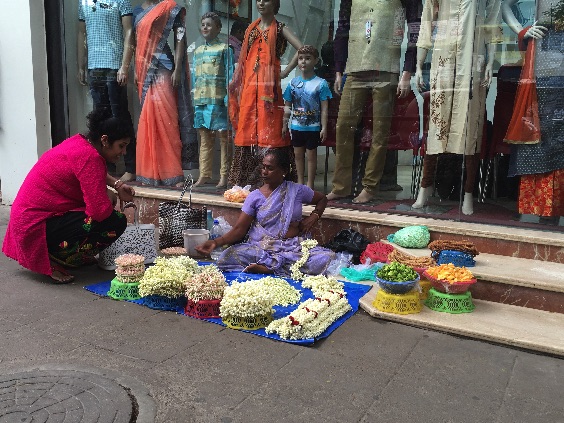
This street vendor has found a source of refuge in Naidu Hall, and the two maintain an interdependent relationship. This business utilizes its contacts to protect the vendors surrounding the shop during unjust times of eviction and confiscation. Furthermore, Naidu Hall provides the street vendors with water, security for themselves and their goods, and access to restroom facilities.
Forced Relocation
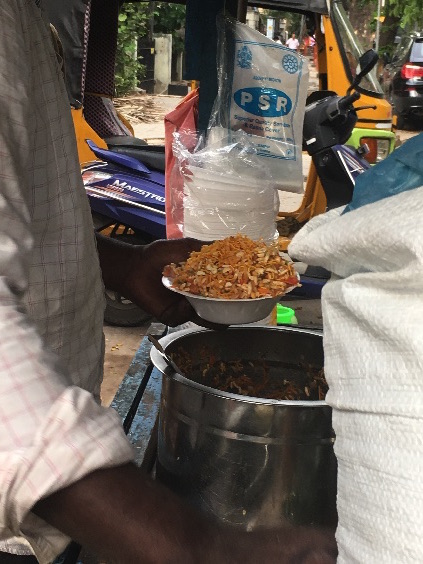
Despite being among the first businessmen to occupy T Nagar, street vendors are now deemed “encroachments.” Street vendors are often tossed around by the larger and stronger entities, therefore leaving the vendor’s business endeavors left to suffer. In particular, this vendor was forced to move from his past vending location which was located in front of Globus.
Unpredictable
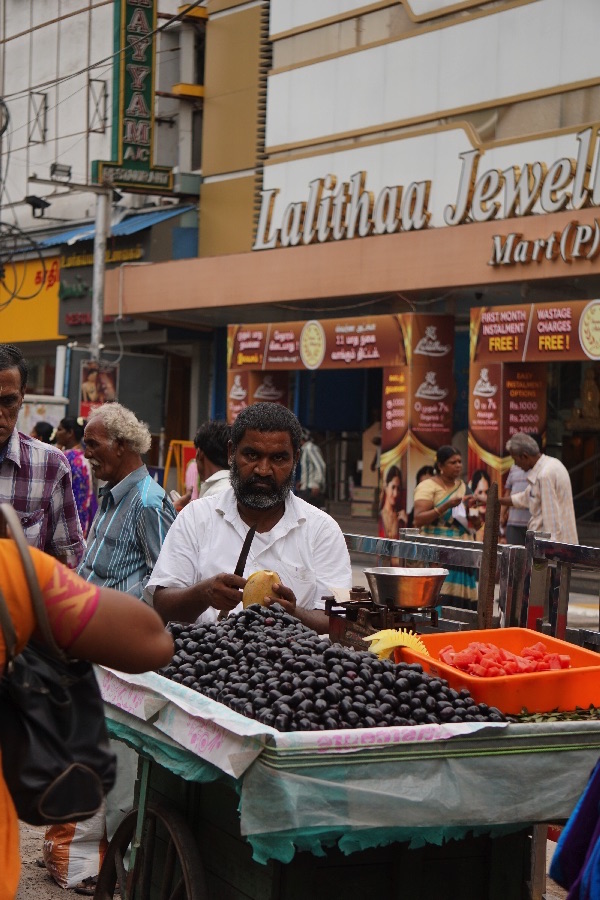
To simply maintain his place on the street, this street vendor has to provide weekly payments to the police. No receipts for this payment are given, therefore providing the opportunity for further methods of injustice to be exerted onto the street vendor at a later date.
The Right to Human Necessities
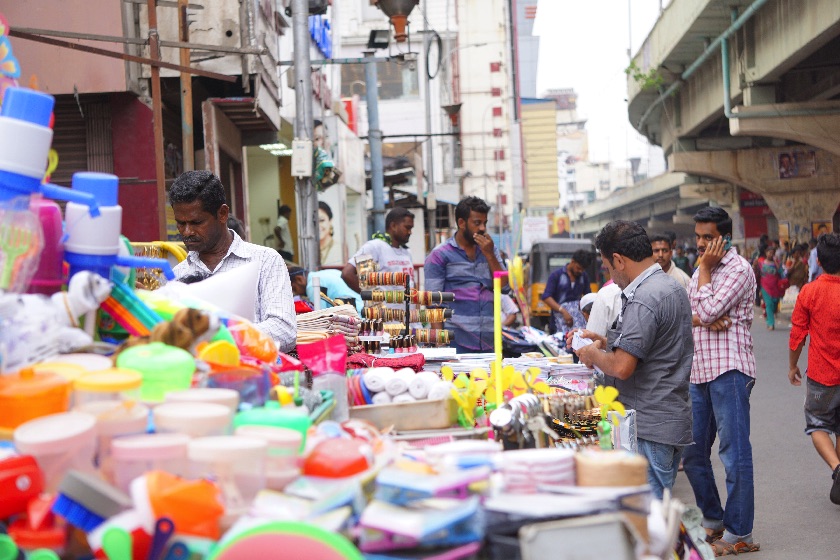
With the groundbreaking of the Smart Cities mission in T Nagar soon to start, basic human necessities should be available to all. It is essential that each citizen’s needs are thought of—and acted upon—in the implementation of the Smart Cities mission. For the majority of vendors along this stretch and in T Nagar, a common complaint were distant toilets (or a lack thereof).
Enhancing the Experience
.jpg)
Despite a pathway that is packed with parked autos, vendors, and pedestrians; many pedestrians flock to this central area of T Nagar for its vibrant shopping experience. For these shoppers, the street vendors enhance their experience: these vendors provide them with inexpensive jewelry to accompany their new sari and supply them with snacks to boost their energy so they can continue shopping under the afternoon sun.
Cramped Quarters
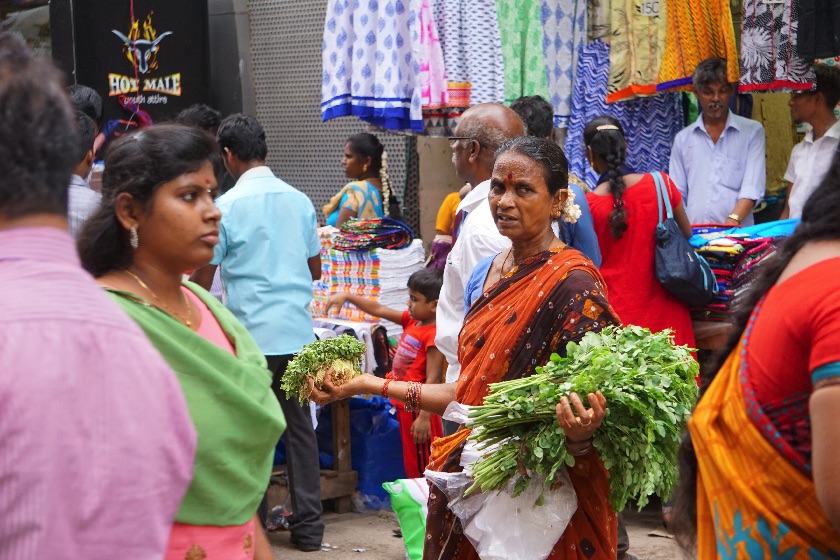
Street vendors have every right to this space and its consumers. However, Ranganathan and Natesan streets are small, cramped streets with no space between the building fronts and the street pavement. As a result, street vendors must locate themselves on the street if they want to profit from the multitude of shoppers in this area of T Nagar.
Neglecting a Means of Sustenance
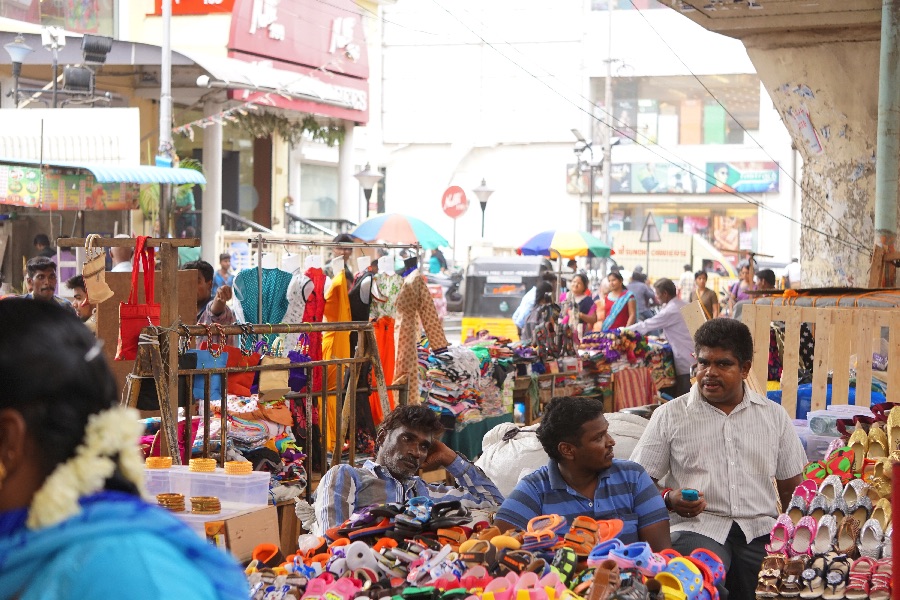
After speaking with several of these vendors, we came to find that the income that these street vendors make is the main source of revenue for their families. For many of these vendors, they are the only earners of the family. With expenses to cover such as their children’s education, food, household items, health care, and transportation; how can we neglect to positively incorporate the street vendors into the fabric of the city?